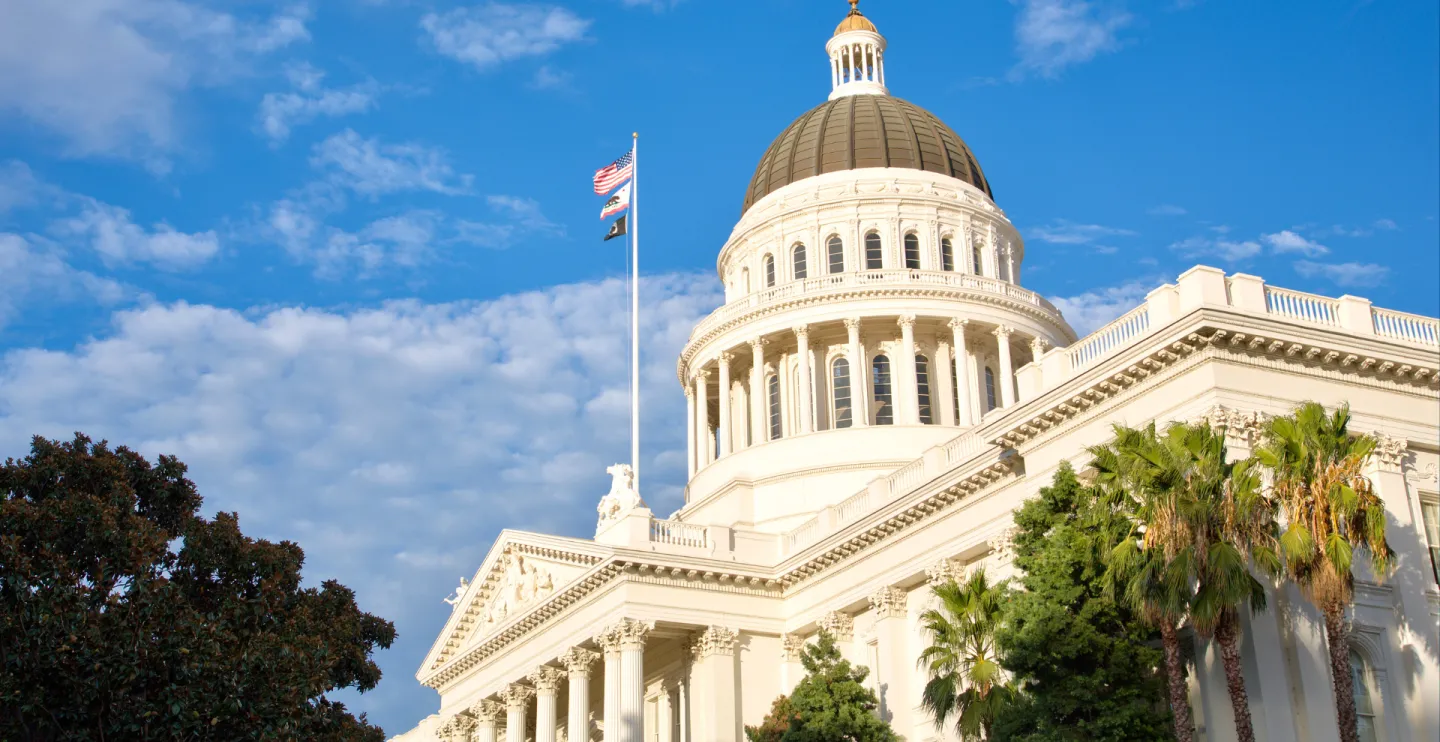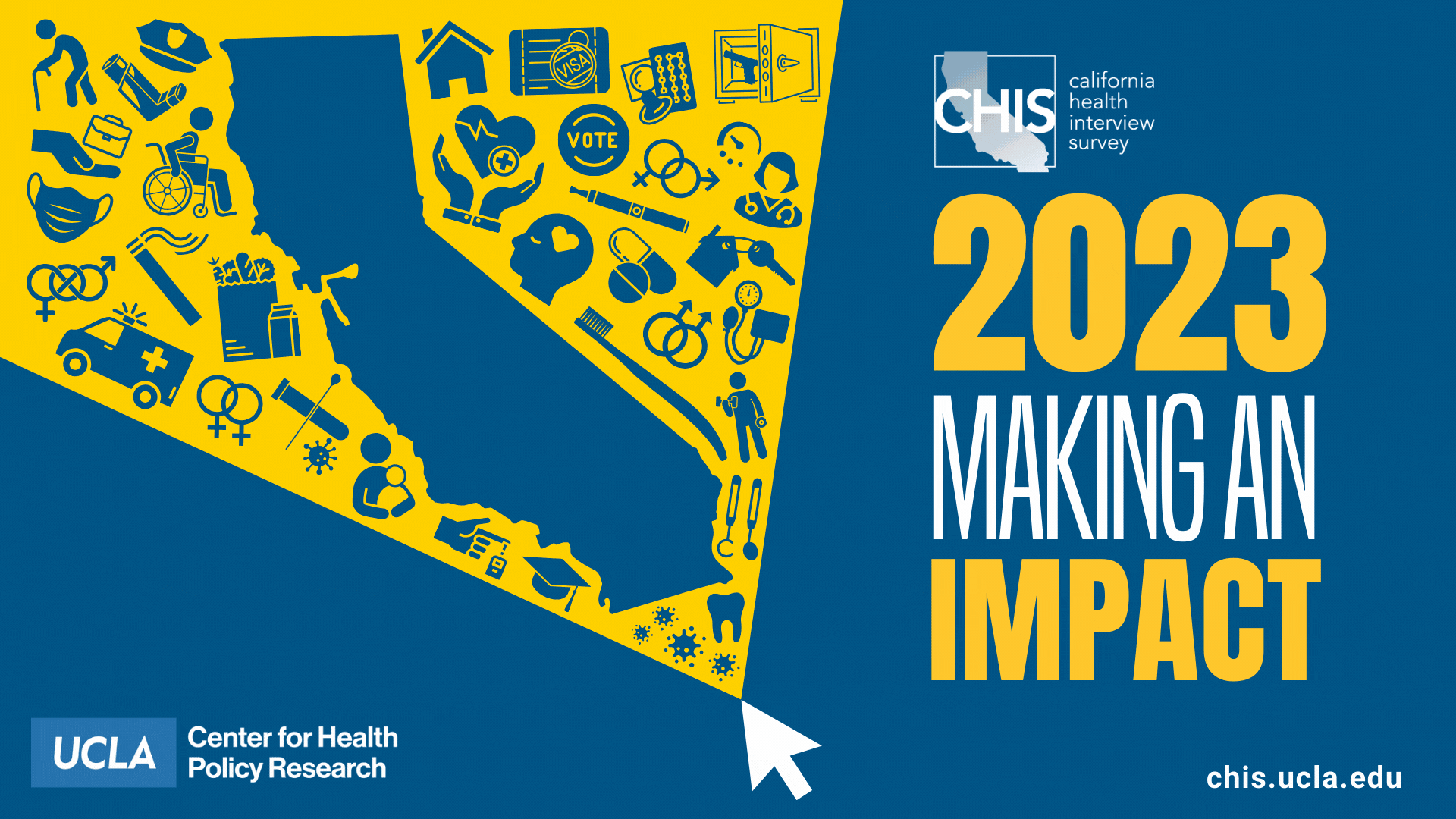CHIS Making an Impact 2023
- Home
- Our Work
- California Health Interview Survey
- CHIS Making an Impact 2023
- CHIS in Legislation
CHIS in Legislation 2022
From reducing the burden of medical debt to expanding access to food benefits for all undocumented immigrants, CHIS data are used to impact policy.
In October 2023, the Los Angeles County Board of Supervisors unanimously approved a motion aimed at reducing the burden of medical debt on county residents. to explore buying and forgiving more than $2 billion owed in unpaid medical expenses.
Authored by Board Chair Janice Hahn and co-authored by Supervisor Holly Mitchell, Reducing Medical Debt in Los Angeles County Through Improved Data Collection and Innovative Strategies to Retire Medical Debt cited data from the California Health Interview Survey, as well as a Los Angeles County Department of Public Health report, Medical Debt in L.A. County: Baseline Report and Action Plan, which uses CHIS data throughout.
The 2021 CHIS data revealed that 1 in 10 adults in Los Angeles County had outstanding medical debt. Additionally, 50% of adults with medical debt burden reported taking on credit card debt to pay for their medical bills, and 46% reported being unable to pay for basic necessities due to their medical bills. The report also takes a deeper dive into the demographic and health-related characteristics associated with medical debt burden, and highlighted the disproportionate impact on Latinx, Black or African American, American Indian and Alaska Native, Native Hawaiian and Pacific Islander, and multiracial adults.
Established in 2002 to implement the provisions of its authorizing statute, the California Health Benefits Review Program (CHBRP) responds to requests from the California State Legislature to provide independent analysis of proposed mandates and repeals. The analysis includes assessing the medical effectiveness of a proposed mandated benefit, the cost impact of the mandated benefit, and the mandate's projected impact on public health. The California Health Interview Survey and the
UC Berkeley Labor Center and UCLA Center for Health Policy Research’s California Simulation of Insurance Markets (CalSIM) microsimulation
model are both used as data sources.
Senate Bill 90
Health Care Coverage: Insulin Affordability would limit cost sharing (copayments, coinsurance, and deductibles) for insulin to $35 for a 30-day supply.
Senate Bill 694
Medi-Cal: Self-Measured Blood Pressure Devices and Services would require coverage for self-measured blood pressure devices (monitors and cuffs) and two device-related services for the treatment of hypertension.
Assembly Bill 85
Social Determinants of Health: Screening and Outreach would require coverage and reimbursement of social determinants of health screening and would require insurers to provide “primary care providers with adequate access to community health workers…and inform primary care providers of how to access these community health workers.”
Assembly Bill 1645
Health Care Coverage: Cost Sharing would prohibit cost sharing and make other requirements for coverage of recommended sexually transmitted infection (STI) screening. For enrollees in nongrandfathered plans and policies, AB 1645 would also prohibit cost sharing for office visit and related services for other recommended preventive services.
Nourish California and the California Immigrant Policy Center launched the Food4All campaign in 2021,
co-sponsoring Senate Bill (SB) 464 with Senator Melissa Hurtado, which would modernize the California Food Assistance Program and make the program accessible to all Californians regardless of their immigration status. Advocates highlighted CHIS data on food insecurity among undocumented immigrants and in 2022, Governor Newsom announced that funding was included in the 2022–2023 State Budget to end the exclusion of income-eligible immigrants ages 55 and older from accessing food benefits due to their immigration status.
A delayed 2027 implementation date was announced, and after months of advocacy, the Governor’s Office announced that implementation would be moved up to October 2025.
In addition, advocates and policymakers are fighting for an expansion that would include undocumented individuals under
the age of 55, 46% of whom are struggling with food insecurity, according to cited CHIS data.
Assembly Bill 311 "Food4All" (Santiago) would expand access to CalFresh to income-eligible California immigrants, regardless of age or immigration status.
Senate Bill 245 “California Food Assistance Program” (Hurtado and Rubio) would remove the age limitation and make any individual eligible for the program if the individual’s immigration status is the sole basis for their ineligibility for CalFresh benefits.
California will now recognize the month of May as Latina Maternal Health Awareness Month, thanks to Senate Concurrent Resolution (SCR) 66, which was introduced by California State Senator Melissa Hurtado.
The bill, which was passed by both the California State Assembly and State Senate, uses CHIS data on health insurance coverage and access to health services.
The resolution was filed with the Secretary of State on June 20, 2023.
The Legislature recognizes the unique health, economic, and societal benefits that improving Latina maternal health outcomes provides to babies, mothers, families, and the community as a whole and affirms that Californians should work to ensure that barriers to safe maternal health care for Latinas are removed."
California Senate Concurrent Resolution 66
Senate Bill 90
Health Care Coverage: Insulin Affordability would limit cost sharing (copayments, coinsurance, and deductibles) for insulin to $35 for a 30-day supply.
Senate Bill 694
Medi-Cal: Self-Measured Blood Pressure Devices and Services would require coverage for self-measured blood pressure devices (monitors and cuffs) and two device-related services for the treatment of hypertension.
Assembly Bill 85
Social Determinants of Health: Screening and Outreach would require coverage and reimbursement of social determinants of health screening and would require insurers to provide “primary care providers with adequate access to community health workers…and inform primary care providers of how to access these community health workers.”














